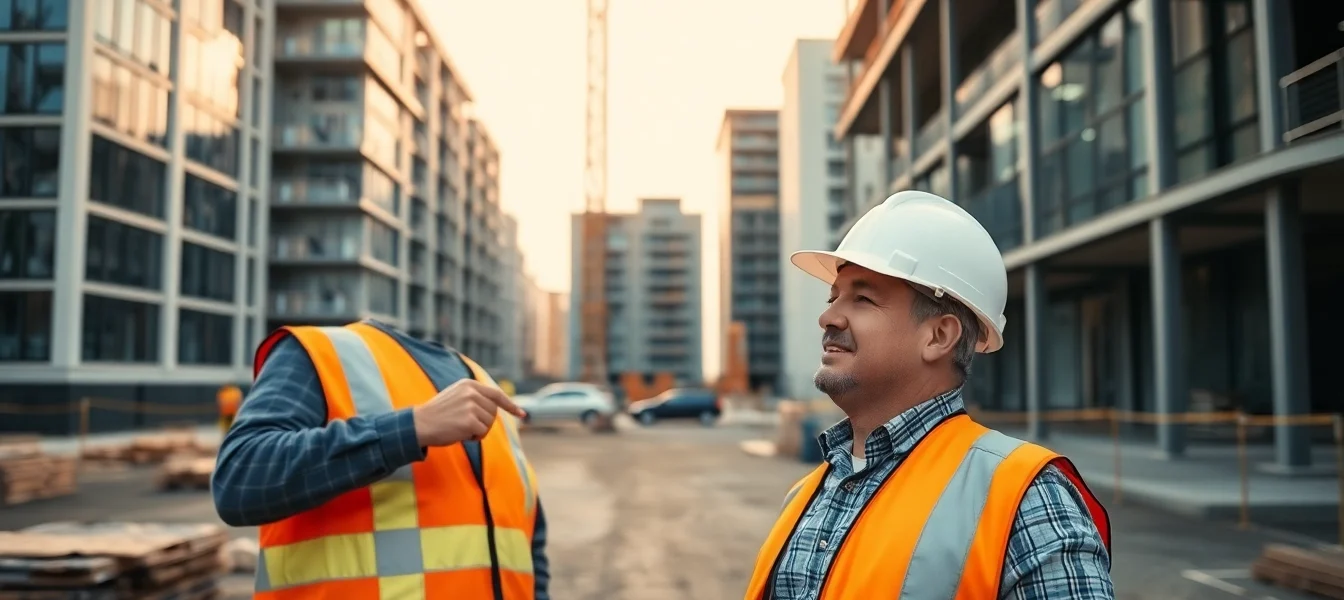Understanding the Role of a Contractor in Construction Projects
In the complex world of construction, the term Contractor is central to the successful completion of projects. Whether building commercial skyscrapers, renovating residential homes, or undertaking specialized infrastructure work, contractors serve as vital orchestrators who bring various elements together. Their expertise, leadership, and organizational skills ensure that projects are completed on time, within budget, and to the required quality standards.
At its core, a contractor is defined as a person or company that performs work on a contract basis. This work encompasses a wide array of responsibilities, including project planning, resource management, quality control, safety oversight, and compliance with legal and regulatory standards. Understanding the multifaceted nature of a contractor’s duties helps clients appreciate why selecting the right professional is crucial for project success.
From general contractors managing entire renovation projects to specialized subcontractors handling electrical systems or plumbing, the role of a contractor is both diverse and specialized. Effective contractors are strategic thinkers, excellent communicators, and skilled negotiators, capable of translating project designs into tangible realities while navigating the intricacies of construction regulations and industry standards.
Defining the Contractor: Key Responsibilities and Expectations
A contractor’s primary responsibility is to oversee, coordinate, and execute construction work according to the project’s specifications. This includes managing subcontractors, ensuring adherence to safety standards, procuring materials, and maintaining timelines. They serve as the communication hub among clients, architects, suppliers, and workers, translating high-level project plans into actionable steps.
Specific responsibilities include:
- Developing project timelines and schedules
- Estimating costs and managing budgets
- Securing necessary permits and licenses
- Hiring and supervising subcontractors and specialized trades
- Quality assurance and control during every phase of construction
- Ensuring code compliance and safety standards are met
- Addressing unforeseen issues promptly and efficiently
Expectations from a contractor extend beyond technical skills. Clients also seek professionalism, transparency, accountability, and the ability to adapt to changing project demands. A reputable contractor not only delivers on their technical commitments but also fosters trust through clear communication and ethical business practices.
Types of Contractors: General, Subcontractors, and Specialty Experts
General Contractors
Serving as the project managers and primary facilitators, general contractors (GCs) oversee the entire construction process. They are responsible for coordinating all aspects of the project, from scheduling to procurement, and ensuring that every phase aligns with project goals. GCs often have extensive experience across various trades or maintain a network of trusted subcontractors.
Subcontractors
Subcontractors are specialized professionals contracted by the general contractor to perform specific tasks, such as electrical wiring, roofing, HVAC installation, or plumbing. Their expertise is crucial for ensuring high standards within their domain. For example, an electrical subcontractor is responsible for wiring, lighting, and electrical safety systems, adhering to local codes.
Specialty Experts
Depending on the project’s complexity, contractors may include specialists such as environmental consultants, structural engineers, or historical preservation experts. These professionals bring niche knowledge and skills that support particular project aspects, enhancing quality, compliance, and sustainability.
Understanding the distinctions among these roles helps clients clarify project scope, manage expectations, and foster effective collaboration. Each type of contractor plays a vital part in transforming architectural visions into tangible constructions.
How Contractors Ensure Project Success and Quality Control
The hallmark of a successful construction project is consistent quality, adherence to schedules, and cost efficiency—all heavily dependent on the contractor’s management prowess. Effective contractors implement robust quality control systems, including regular inspections, documentation, and corrective actions.
Key strategies include:
- Developing comprehensive project plans with clear milestones
- Utilizing project management software to monitor progress and costs
- Establishing quality benchmarks aligned with industry standards
- Conducting regular site inspections to prevent defects
- Implementing safety programs to reduce accidents and liability
- Maintaining open channels of communication with all stakeholders
Furthermore, experienced contractors anticipate potential risks—such as supply chain disruptions or regulatory delays—and develop contingency plans to mitigate impact. They also foster a culture of accountability, ensuring that all team members understand their roles and responsibilities.
Practical case studies reveal that projects led by highly organized contractors are more likely to meet or exceed expectations, demonstrating that strong leadership and rigorous quality assurance are indispensable.
Choosing the Right Contractor for Your Needs
Factors to Consider When Hiring a Contractor
Selecting an appropriate contractor requires thorough evaluation and strategic decision-making. Key factors include:
- Experience and specialization: Ensure they have relevant expertise aligned with your project scope.
- Credentials and licensing: Verify professional licenses, insurance coverage, and bonding to mitigate legal and financial risks.
- Reputation and references: Seek testimonials, reviews, and references from past clients to assess reliability and quality of work.
- Cost estimates and transparency: Obtain detailed bids and clarify payment schedules upfront.
- Project management approach: Determine their communication style and how they coordinate subcontractors and suppliers.
- Availability and scheduling flexibility: Confirm their capacity to meet your timeline requirements.
Questions to Ask Before Hiring a Construction Contractor
To make an informed decision, prepare a series of probing questions, such as:
- Can you provide a detailed quote and breakdown of costs?
- Do you hold valid licenses and insurance? Can you provide proof?
- What is your project timeline from start to finish?
- Can you share examples of similar completed projects?
- How do you handle unforeseen issues or changes during construction?
- What is your process for ensuring quality and safety on site?
Verifying Contractor Credentials and Licensing
Credentials verification is critical in establishing legitimacy and competence. Check license status and disciplinary history through local or state licensing boards. Confirm that the contractor holds necessary permits for your type of project and adheres to current building codes. Additionally, request proof of insurance to protect against liabilities and potential damages.
Utilizing online databases and industry associations can streamline this process. Ensuring proper certification not only safeguards your investment but also aligns with legal requirements, reducing the risk of project delays or legal disputes.
Steps to Establish a Successful Contractor-Client Relationship
Clear Communication and Expectations Setting
The foundation of any successful project is transparent communication. Early discussions should clearly specify project goals, scope, deliverables, and deadlines. Establishing a shared understanding minimizes misunderstandings and sets realistic expectations.
Use detailed written agreements to document project scope, responsibilities, payment terms, and procedures for change orders. Regular updates and progress meetings reinforce alignment and foster trust.
Contract Negotiation and Project Planning
Negotiating a comprehensive contract is crucial. This document must outline all project details, including timelines, payment schedules, warranty provisions, and dispute resolution processes. Collaborate with legal experts if necessary to ensure clarity and enforceability.
Effective planning involves detailed project schedules, procurement strategies, and risk assessments. A well-crafted plan guides workflow, manages expectations, and provides benchmarks for progress evaluation.
Monitoring Progress and Ensuring Accountability
Continuous oversight is essential to keep the project on track. Implementing site inspections, progress reports, and quality assessments helps identify issues early. Establish metrics for measuring performance and compliance.
Encouraging open dialogue and addressing concerns promptly cultivates collaboration and accountability. When difficulties arise, swift action and transparent communication ensure minimal disruption.
Legal and Regulatory Aspects of Working with a Contractor
Understanding Construction Contracts and Documentation
Legal agreements form the backbone of a successful project. The construction contract should delineate scope, costs, timelines, penalties, warranties, and dispute resolution mechanisms. Contracts serve as legal safeguards, clarifying responsibilities and expectations.
Supplementary documentation includes permits, plans, change orders, and inspection reports. Proper record-keeping ensures compliance and provides evidence in case of disputes.
Permits, Licenses, and Compliance Requirements
Regulatory adherence is non-negotiable. Contractors must obtain necessary permits before commencing work and adhere to all local, state, and federal codes. Non-compliance can lead to fines, project delays, or legal actions.
Clients should verify that the contractor holds all requisite licenses and stays updated on evolving regulations. Ensuring compliance safeguards investments and promotes safety.
Resolving Disputes and Contract Enforcement
Disagreements are possible but manageable through predefined conflict resolution methods such as mediation or arbitration. Clear contractual clauses help resolve issues efficiently and avoid costly litigation.
Maintaining comprehensive documentation throughout the project simplifies enforcement and provides clear pathways for addressing grievances.
Maximizing Value and Project Outcomes with a Professional Contractor
Cost Management and Budgeting Tips
Controlling costs begins with accurate estimates and detailed budgets. Contractors should provide transparent bids, breaking down labor, materials, permits, and contingency funds. Establishing a contingency fund—typically 10-15%—helps manage unforeseen expenses.
Regular financial review and prompt change order processing prevent budget overruns. Utilizing cost-tracking software enhances real-time visibility and accountability.
Time Management and Meeting Deadlines
Effective scheduling hinges on careful planning, realistic timelines, and proactive resource allocation. Critical path method (CPM) scheduling helps identify key activities influencing project duration.
Regular progress assessments and adaptive management strategies mitigate delays. Clear communication ensures all parties remain aligned with revised deadlines.
Quality Assurance and Long-Term Satisfaction
Delivering a high-quality final product requires rigorous quality control processes, including inspections, testing, and adherence to specifications. The contractor must prioritize craftsmanship, safety, and durability.
Post-project evaluations and warranties contribute to long-term satisfaction. Maintaining open channels for client feedback and addressing issues promptly deepen trust and reputation.




